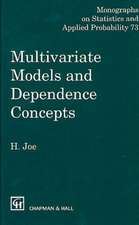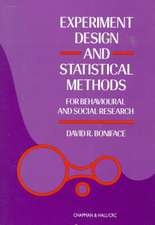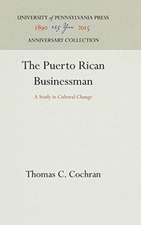Culture: Key Concepts
Autor F Inglisen Limba Engleză Paperback – 15 iun 2004
In this engaging new textbook, Fred Inglis charts the history of the concept from its origins in the German Enlightenment to contemporary attempts to come to terms with the cultural impact of globalization. Drawing on the work of leading philosophers and theorists, the author adopts a broadly chronological approach to explore the changing definitions and contestations of culture over time. He concludes by highlighting the potential shortcomings of postmodernism, and argues for the continuing need to apply ancient values of truthfulness, goodness and beauty to all discussions of culture.
This lively introduction will be of interest to undergraduate students and scholars in sociology, politics, anthropology, cultural and media studies.
Din seria Key Concepts
-
 Preț: 127.55 lei
Preț: 127.55 lei -
 Preț: 134.77 lei
Preț: 134.77 lei -
 Preț: 213.06 lei
Preț: 213.06 lei -
 Preț: 127.37 lei
Preț: 127.37 lei -
 Preț: 276.57 lei
Preț: 276.57 lei -
 Preț: 143.42 lei
Preț: 143.42 lei -
 Preț: 190.29 lei
Preț: 190.29 lei -
 Preț: 143.67 lei
Preț: 143.67 lei -
 Preț: 238.08 lei
Preț: 238.08 lei -
 Preț: 213.98 lei
Preț: 213.98 lei -
 Preț: 135.65 lei
Preț: 135.65 lei -
 Preț: 283.26 lei
Preț: 283.26 lei -
 Preț: 144.81 lei
Preț: 144.81 lei -
 Preț: 101.00 lei
Preț: 101.00 lei -
 Preț: 275.19 lei
Preț: 275.19 lei -
 Preț: 143.51 lei
Preț: 143.51 lei -
 Preț: 144.08 lei
Preț: 144.08 lei -
 Preț: 127.55 lei
Preț: 127.55 lei -
 Preț: 275.75 lei
Preț: 275.75 lei -
 Preț: 213.22 lei
Preț: 213.22 lei -
 Preț: 275.48 lei
Preț: 275.48 lei -
 Preț: 283.89 lei
Preț: 283.89 lei -
 Preț: 278.17 lei
Preț: 278.17 lei -
 Preț: 276.02 lei
Preț: 276.02 lei - 17%
 Preț: 214.78 lei
Preț: 214.78 lei -
 Preț: 131.88 lei
Preț: 131.88 lei - 5%
 Preț: 120.75 lei
Preț: 120.75 lei -
 Preț: 275.48 lei
Preț: 275.48 lei - 19%
 Preț: 174.07 lei
Preț: 174.07 lei -
 Preț: 275.19 lei
Preț: 275.19 lei -
 Preț: 127.10 lei
Preț: 127.10 lei -
 Preț: 218.74 lei
Preț: 218.74 lei - 15%
 Preț: 427.25 lei
Preț: 427.25 lei -
 Preț: 218.00 lei
Preț: 218.00 lei -
 Preț: 219.09 lei
Preț: 219.09 lei - 16%
 Preț: 217.35 lei
Preț: 217.35 lei -
 Preț: 182.29 lei
Preț: 182.29 lei -
 Preț: 198.05 lei
Preț: 198.05 lei - 21%
 Preț: 216.79 lei
Preț: 216.79 lei - 23%
 Preț: 190.50 lei
Preț: 190.50 lei - 15%
 Preț: 429.51 lei
Preț: 429.51 lei - 21%
 Preț: 218.47 lei
Preț: 218.47 lei -
 Preț: 199.44 lei
Preț: 199.44 lei - 5%
 Preț: 175.27 lei
Preț: 175.27 lei
Preț: 197.69 lei
Nou
37.83€ • 40.45$ • 31.54£
Carte tipărită la comandă
Livrare economică 17 aprilie-01 mai
Specificații
ISBN-10: 0745623816
Pagini: 200
Dimensiuni: 140 x 214 x 13 mm
Greutate: 0.28 kg
Editura: Polity Press
Seria Key Concepts
Locul publicării:Chichester, United Kingdom


















